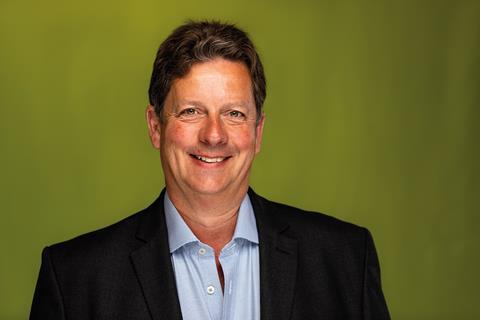Chairman of Birkett Long, Essex

There were no lawyers in my family. Law was not a career that I had ever considered before the rather abrupt ‘careers’ interview I had at sixth-form college. It was suggested to me as a possible career path on the basis that I was naturally argumentative. When my parents agreed that to be the case, I started to look into it. I was fortunate to have a couple of inspirational lecturers at university and another at law college. That is what led me to pursue the law. But having the chance to work with people and actually practise was what really inspired me – and still does.
I read law and politics at Cardiff University. I then took a gap year, saving up to travel and then working as a tiler in Australia. I did the then Law Society Finals at the College of Law in Chester. In those days, the results were published in The Times and the Telegraph for all the world to see. If your name was not in print, then you had not been successful. I was flying back from a wedding in France on the relevant day and my now wife Sarah met me at the airport with a copy of the newspaper. Luckily my name was there.
While at law college, I had written to two firms in Colchester, having got their names from the book of law firms kept in the library. We had fixed on north Essex because it was reasonably equidistant from our respective parents’ homes, and Sarah had been offered a teaching job at a local school. I was first interviewed over the phone for 45 minutes while my housemates tried to make me laugh. I was then invited to meet some of the partners for a more formal interview in Colchester. As well as the usual questions, I was asked whether I played cricket. One of the partners was very keen, and there weren’t too many people young enough to get out a regular team. I truthfully replied that I did, and luckily was never asked whether I was any good at it.
'Thirty-five years on, we are still trying our very best to deliver great service to our clients. Information is more accessible, and communication is so much easier. But centralisation and the closure of local courts has made access to local justice very challenging'
I qualified as a general litigator in the days when specialism was rare in provincial firms. I have been encouraged to grow with the firm and given the opportunity to pursue the areas of law which truly interested me. From the equivalent of probably one full-time lawyer’s caseload in the family law field, we now have 10 solicitors and four great assistants. I’m very proud of having been a part of that. Along the way, I have worked with some fantastic colleagues and dealt with some challenging cases. The social life at the firm has always been excellent, although at one summer games event I did end up in hospital with a fractured hyoid bone after colliding with the very solid head of a fellow solicitor. Birkett Long loves to be involved in our local community too, which has been very rewarding over the years.
In the past, I have led teams and departments and chaired our strategy committee. I saw the role of chairman as the chance to be involved across the firm, working with the partnership and the senior leadership team while also being an ambassador. I chair meetings but am also involved in communicating the board’s thinking, facilitating the voices of colleagues, working with, and challenging, the managing partner, and supporting colleagues in a whole variety of ways. In our organisational chart, I sit in a completely separate box which gives me a fairly wide-ranging brief.
In 1987 [when I joined Birkett Long] we had no emails, mobile phones or internet. Manual typewriters were widely used, client account details were held on a rotating card file device, and all legal research was done in books. Most towns had a magistrates’ court, and most towns of any size a county court with resident district and circuit judges. The local legal community was very social. I think the pace of legal practice was slower, though no less intense. Thirty-five years on, we are still trying our very best to deliver great service to our clients. Information is more accessible, and communication is so much easier. But centralisation and the closure of local courts have made access to local justice very challenging.































No comments yet